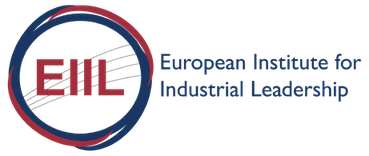~ A forthcoming report details the findings of the year-long consortium, with further meetings planned for 2017 to expand on the work done so far ~
The EIIL’s Industry 4.0 research consortium has seen 41 functional managers from 21 companies contribute their opinions on the workshop series this year. The purpose of the group was to crowd-source opinion on the impact of industry 4.0 on the chemical industry, with workshops looking at markets, the process value stream, maintenance and services, and data security. A full report on all of these topics will be published later this year detailing the findings. In addition the consortium generated opinions on the implications for leadership skills in the near future.
Highlights from discussions on the leadership skills needed were:
More entrepreneurial skills.
Along with an in-depth knowledge of ones market, key abilities were also discussed including the ability to ‘futurise’ an idea and build support for it, either using real data to support it or to fail fast and find another; to create a team, both from internal and external partners; to build an argument to secure investment in your project and then to execute it and the ability to manage the changes required within your existing organisation and its partners.
Effective networking skills
Here the invaluable skills revolved around developing and maintaining a really good network in order to find and quickly engage knowledge and resources, both from within your organisation and from outside. Also highlighted was the ability to identify and leverage key figures in your network and make use of them effectively in support of your projects, with sufficient mutual benefit to leave them willing to support you again in the future.
Skills at leading increasingly multi-cultural distributed teams
This includes the possibility of leading teams comprised of both internal and external people. This will require an appreciation of different cultures and the essential communication approaches which will be most effective with each.
One of the most interesting concepts to emerge from the workshop series was the fact that there are different cultures between generations in the same workplace, as well as between different locations/nationalities. Leaders who recognise this are set to create more engaging and inclusive workplaces for employees of all generations by playing to the strengths of each age group and supporting their weaknesses.
Multi-company experience will be increasingly valuable as there will be increased interdependence with supply chain and other service providing partners, and differences between companies in identical locations can be bigger than differences between locations of the same company.
Additionally, future leaders must have the capability to do all of the above in an increasingly uncertain world.
As well as insights into the skills of future leaders, there were discoveries made about the nature of industry recruitment find jfk airport car service. Over the whole series of workshops it was repeated that industry has a problem providing sufficient entry-level jobs and a variety of career paths, and making these appear cool enough to attract and retain talent in the face of increasingly visible alternatives pushed by recruitment consultants through social media.
The Industry 4.0 research consortium will continue into 2017 with workshops planned to look at the impacts on procurement, supply chain and logistics (together with EPCA), and the value and use of engineering data as the digital asset.

